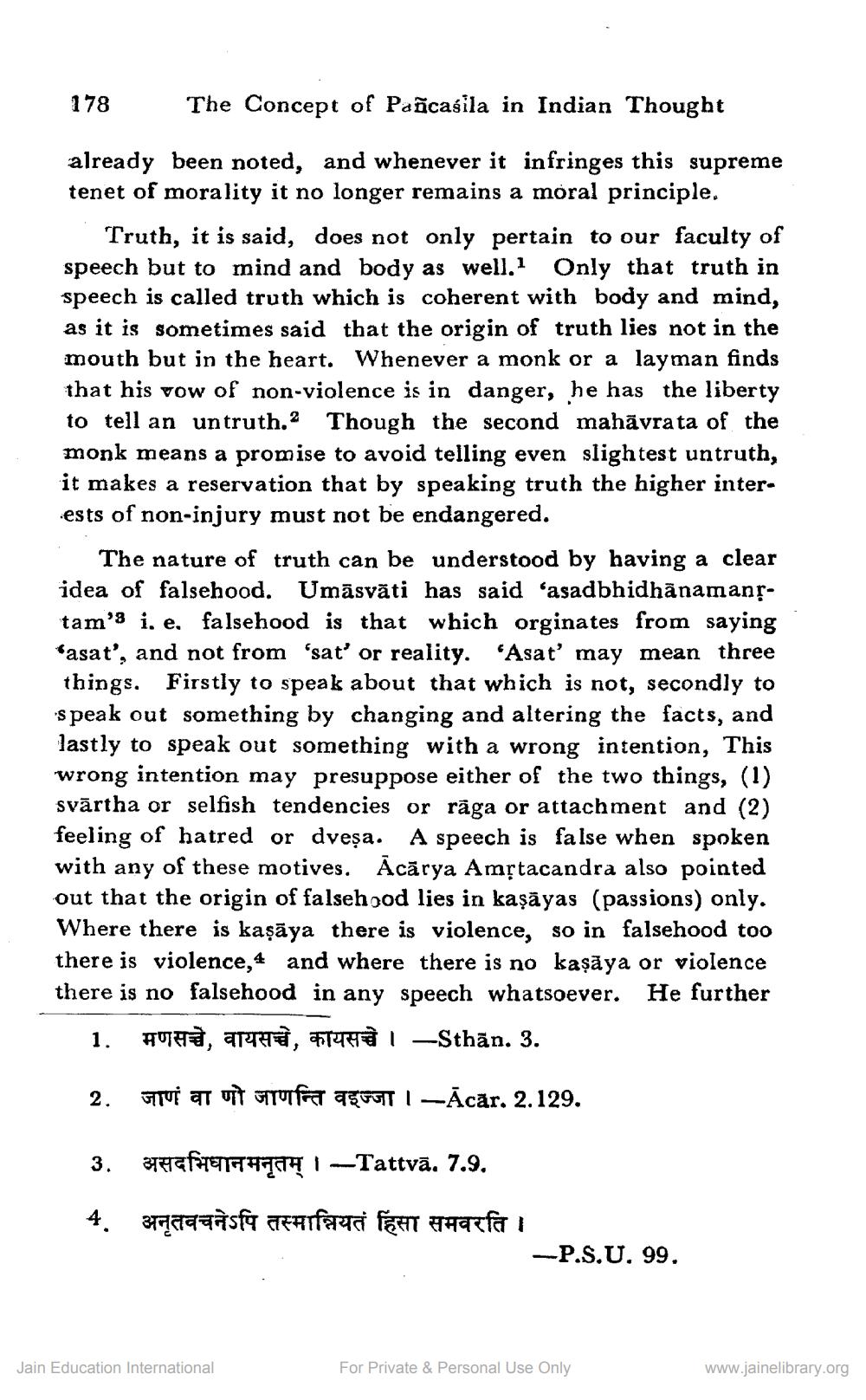________________
178
The Concept of Pancasila in Indian Thought
already been noted, and whenever it infringes this supreme tenet of morality it no longer remains a moral principle.
Truth, it is said, does not only pertain to our faculty of speech but to mind and body as well. Only that truth in speech is called truth which is coherent with body and mind, as it is sometimes said that the origin of truth lies not in the mouth but in the heart. Whenever a monk or a layman finds that his vow of non-violence is in danger, he has the liberty to tell an untruth. Though the second mahāvrata of the monk means a promise to avoid telling even slightest untruth, it makes a reservation that by speaking truth the higher interests of non-injury must not be endangered.
The nature of truth can be understood by having a clear idea of falsehood. Umāsvāti has said 'asadbhidhānamans. tam's i. e. falsehood is that which orginates from saying *asat', and not from 'sat' or reality. “Asat may mean three things. Firstly to speak about that which is not, secondly to speak out something by changing and altering the facts, and lastly to speak out something with a wrong intention, This wrong intention may presuppose either of the two things, (1) svārtha or selfish tendencies or rāga or attachment and (2) feeling of hatred or dveşa. A speech is false when spoken with any of these motives. Ācārya Amộtacandra also pointed out that the origin of falsehood lies in kaşāyas (passions) only. Where there is kaşāya there is violence, so in falsehood too there is violence, and where there is no kaşāya or violence there is no falsehood in any speech whatsoever. He further
1. 9 , arte, frutal -Sthān. 3.
2. ATV AT UIT STUFF TOT I —Ācār. 2. 129.
3. FETAHTH 1 --Tattvā. 7.9. 4. 3Panagisa arafered fraft haefari
-P.S.U. 99.
Jain Education International
For Private & Personal Use Only
www.jainelibrary.org




